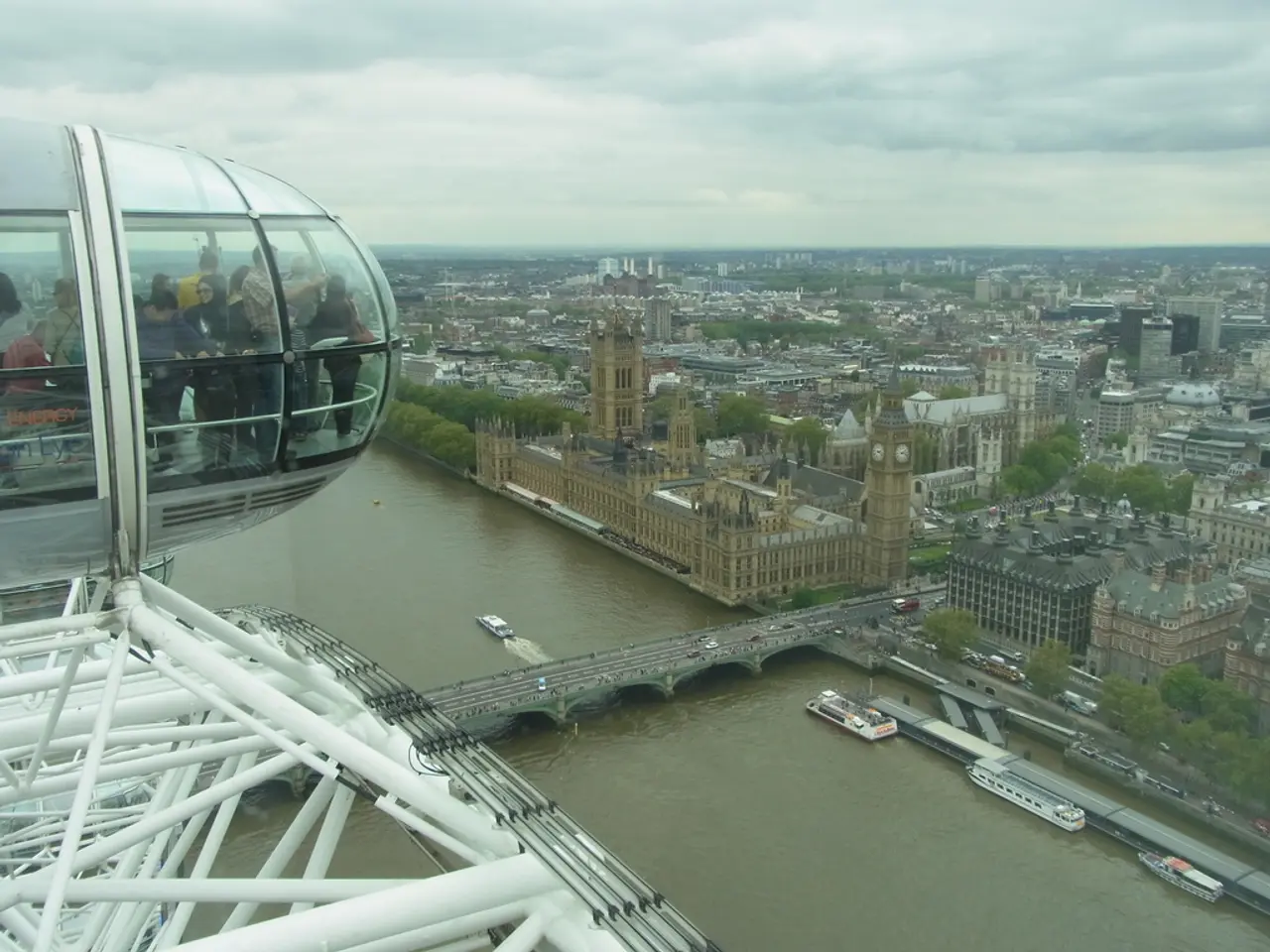UK's inflation rate, marked by escalating food prices, surges to 3.8%, surpassing both the U.S. and the eurozone rates.
The Bank of England (BoE) finds itself in a challenging position as inflation in the U.K. continues to outpace its target and other major advanced economies. Inflation remained at 3.8% in the year to August, according to the latest data, staying above the BoE's target rate of 2% for the eleventh consecutive month.
Paul Dales, chief U.K. economist at Capital Economics, expects the looser labor market to weaken wage growth and eventually bring U.K. inflation to similar rates as in the U.S. and the eurozone. However, the path to achieving this goal is fraught with uncertainty.
Since August 2022, the BoE has been gradually cutting borrowing rates every three months. The latest reduction occurred in May, with the bank voting 5-4 in favour of a quarter-point cut. This split vote suggests a potential slowing of the rate cut pace. Market expectations are that the central bank will keep interest rates unchanged at 4% on Thursday.
James Smith, research director at the Resolution Foundation, stated that Britain is an international outlier for 'sticky' inflation. Food and non-alcoholic drinks prices were 5.1% higher in August than a year earlier, rising for the fifth month in a row. Food prices rose at the sharpest rate since January last year, contributing significantly to the overall inflation figure.
However, there is some good news on the horizon. Airfares fell sharply after a big spike in July, offering a glimmer of hope that some inflationary pressures may be easing. Inflation for services slowed to 4.7% from 5.0% in July, and core inflation, excluding energy, food, and tobacco prices, fell to 3.6% in August.
Treasury chief Rachel Reeves stated that she is determined to bring costs down and support people facing higher bills. The government, led by Prime Minister Keir Starmer since July 2024, has been grappling with inflation that remains nearly double the BoE's target rate. Inflation in the U.K. is the highest among major advanced economies.
Economists are split on whether another rate cut is forthcoming due to inflation being stickier than anticipated. If the bank were to continue cutting interest rates, the next reduction would likely occur in November. The BoE has forecasted that British inflation will reach 4% in September and stay above its 2% target until the spring of 2027.
As the BoE navigates this complex economic landscape, it will need to strike a delicate balance between controlling inflation and supporting economic growth. The path forward is uncertain, but one thing is clear: the fight against inflation is far from over.
Read also:
- President von der Leyen's address at the Fourth Renewable Hydrogen Summit, delivered remotely
- Unveiling Innovation in Propulsion: A Deep Dive into the Advantages and Obstacles of Magnetic Engines
- Intensified farm machinery emissions posing challenges to China's net-zero targets
- EU Fuel Ban Alerts Mercedes Boss of Potential Crisis




